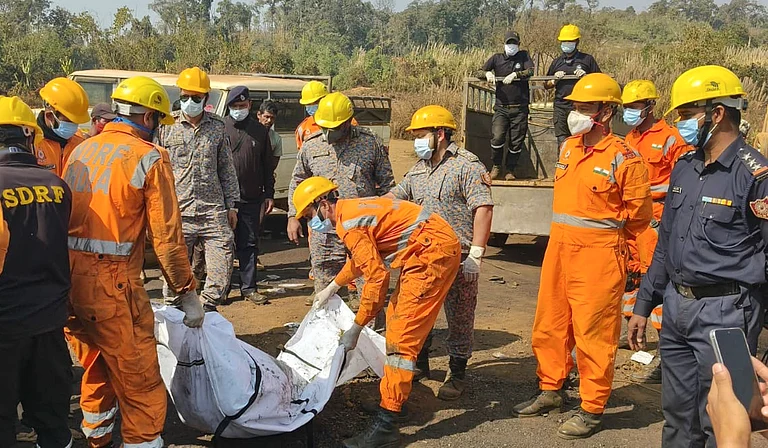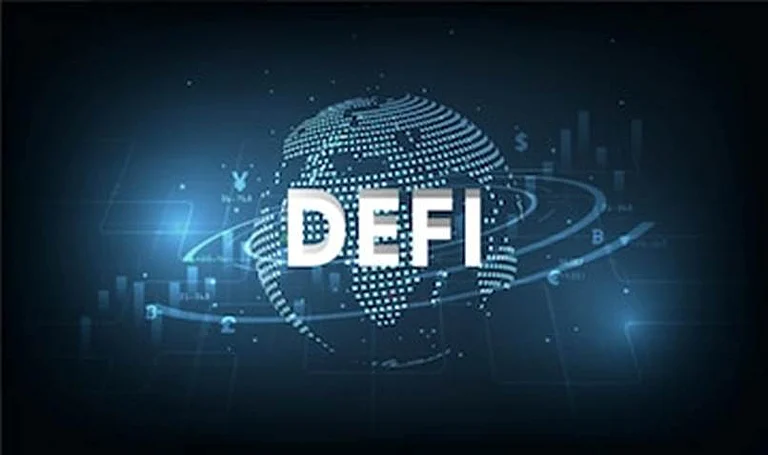
A.P.J Abdul Kalam, President of India
Among the several books I read this year, a few left an enriching impression and triggered my imagination. The first is Brian Greene's The Fabric of the Cosmos (Alfred A. Knopf). I liked Greene's discussions on the constitution of spacetime and the way he has reconciled string theory with loop quantum gravity. This book delves into the fabric of cosmos construction. It is engaging. I quite often refer to this book.
The second book that left a good impression on me is Paulo Coelho's Manual of the Warrior of Light (HarperCollins). I enjoyed reading Paulo's statement in the book, "The warrior smiles because nothing frightens him and nothing holds him. With the confidence of one who knows what he wants, he opens the door."
Another interesting book is the one I received from my friend Radhakrishnamurthy of New Century Book House, Chennai. It is a colossal work of Sangam Tamil literature compiled in several volumes belonging to the 2nd century BC. Commentaries to the Purananuru has been written in two volumes. In a commentary to one of the 400 poems, it outlines how a ruler of the nation ought to be. It says, "It is not the quality of the land or the productivity of the nation that matters most. But the quality of the man who rules the nation will ensure prosperity of the nation."

Manmohan Singh, Prime Minister
There is very little time for reading in my new job. But of the few books I've read, my favourite is Genghis Khan and the Making of the Modern World by Jack Weatherford (Crown Publishers, New York). It's a fascinating book portraying Genghis Khan in a totally new light. It shows that he was a great secular leader, among other things.
Other books I've read this year include Strobe Talbott's Engaging India—Diplomacy, Democracy and the Bomb (Penguin/Viking), P.C. Alexander's autobiography, Through the Corridors of Power—An Insider's Story (HarperCollins), Amrik Singh's The Challenge of Education (ICFAI University Press).
I'm also re-reading The Mulk Raj Anand Omnibus (Penguin/Viking). Mulk Raj and I were neighbours in Amritsar where both of us taught in Punjab University. He was like a father figure to me, helping me through difficult times.

Salman Rushdie, Author
I liked Suketu Mehta's Maximum City—Bombay Lost and Found (Penguin/Viking). Another favourite this year is Bob Dylan's autobiography, Chronicles (Simon & Schuster).

Jagdish N. Bhagwati, Economist
I greatly enjoyed reading The Man Who Found Time by Jack Repcheck (Perseus). This is a brilliant book by Repcheck, a senior editor at publishing house WW Norton, about James Hutton, a contemporary of David Hume and Adam Smith, and a member of the Scottish Enlightenment, who made pathbreaking contributions to determining the earth's antiquity.
I also read Governance—And the Sclerosis That Has Set In by Arun Shourie (Rupa). Shourie gave this book to me in Delhi. I'd wanted to read it after Edward Luce gave it a splendid review in The Financial Times. I was spellbound. It should be compulsory reading not just for our politicians, but also for every schoolchild who aspires to change India for the better.

Khushwant Singh, Author
I liked Amitav Ghosh's Hungry Tide (Ravi Dayal/ HarperCollins) because it is a novel that educates as well as entertains. It gives an account of the Sunderbans, a region I knew nothing about.There's so much information on the flora, fauna and how the people manage to survive a hostile environment with man-eating tigers. Yet there is a story line.
I also liked The Kite Runner by Khaled Hosseini (Bloomsbury) for the same reasons: it's full of information about Afghanistan under the Taliban and also has a strong story line.

Mark Tully Broadcaster, Author
The novel I enjoyed most this year was The No. 1 Ladies' Detective Agency by Alexander McCall Smith (Abacus). It has the prime quality of a novel—a strong story. It's got humour and sympathy not easy to combine.It's certainly an original.
The non-fiction book I enjoyed most was Phoenix from the Ashes—The Indian Army in the Burma Campaign by Daniel P. Marston (Praeger). Written by a professional historian, it is the story of an almost forgotten campaign which showed the British that Indian officers were the equal of any others. The politics which led to the initial disaster in Burma is a necessary reminder that even a political leader as admired by his fellow countrymen as Winston Churchill often got it wrong.

Girish Karnad, Director/Playwright
Among my two favourites, one is Pratap Bhanu Mehta's The Burden of Democracy (Penguin). An original, scintillating and moving analysis of the potentialities and failures of Indian democracy. My other favourite is Vinay Lal's The History of History (OUP). A scholarly and often hilarious debunking of the apotheosis of 'History' that's taken place in India since the Babri Masjid episode and a passionate plea to realise the advantages of being a culture capable of experiencing time in mythic terms.

Simi Garewal, Talkshow Host
I liked the Bill Clinton autobiography, My Life (Alfred A. Knopf). I thought it was candid, if a bit too verbose. I like people, which is why I do a show like Rendezvous. I am interested in personalities—so I read a lot of biographies. I was fascinated by what makes someone like him tick and wondered how he dealt with certain situations in his life. It was simple and frank, though it could have been a bit shorter. I felt I understood him better after reading it.

Sushmita Sen, Actress
My favourite this year is The Monk Who Sold His Ferrari by Robin Sharma (Full Circle). I liked this because it tells you about being The Buddha. About how Buddha is not separated from your daily life—about how you don't have to be sitting on top of a mountain or renounce life to find enlightenment. It also mentions the lotus sutra Nam-Myoho-Renge-Kyo which is the cosmic sound for all life within the universe. Milan Kundera's The Unbearable Lightness of Being is my all-time favourite romance story, my all-time favourite love story.

William Dalrymple, Writer
My four favourite books this year were Gilles Kepel's The War for Muslim Minds (Harvard University Press)—the best analysis yet of the strange symbiosis existing between Al Qaeda and the Washington NeoCons; Ben MacIntyre's The Man Who Would be King (Farrar, Straus & Giroux)—a wonderful look at the true tale behind the Kipling short story; Beyond Turk and Hindu—Rethinking Religious Identities in Islamicate South Asia edited by David G.Gilmartin and Bruce B. Lawrence (India Research Press), a major new book on inter-communal relations in medieval South Asia, and viciously attacked by Balbir Punj in these pages, but you can't get a higher recommendation than that; and Suketu Mehta's Maximum City—much hyped, but which proved every bit as remarkable as the publicity suggested it would be.

Amit Chaudhuri, Novelist
Among the books that gave me real pleasure this year is Giuseppe di Lampedusa's The Leopard (Pantheon), an excoriatingly intelligent, poetic novel about the decline of an aristocratic family and its protagonist, and the transformation of Sicily's political landscape.The novel was posthumously published in 1960, as was the essay that drew my attention to it, Edward Said's Thoughts on Late Style.My second book too is near-posthumous, the incomparable, and now sadly late, Arun Kolatkar's Kala Ghoda Poems (Pras Prakashan), written from the vantage-point of an idle voyeur watching the low-life of Kala Ghoda from the Wayside Inn (like Kolatkar, now no longer of this world). Kolatkar is our greatest poet in English of the urban commonplace, the economy of junk on our streets, the endlessly recyclable and revivable.

Pankaj Mishra, Novelist
Nadeem Aslam's novel, Maps for Lost Lovers (Faber), in which a very subcontinental sensibility, steeped in romantic Urdu poetry, describes a dramatic year in the life of a self-enclosed Muslim community in modern-day England.

Ramachandra Guha, Author
My favourite books tend to be at the junction of history and biography, and so it was this year. Peter Osborne's Basil D'Oliveira (Little, Brown) tells the story of apartheid through the life of a single cricketer. By contrast, Tom Segev's equally compelling One Palestine, Complete (Abacus) is a work of multiple biography—with the story of modern Palestine expressed through the voices of Arab intellectuals, Jewish colonists, Spanish diplomats and, not least, British imperialists.

Pavan K. Varma, Diplomat Writer
Since I've been in London this year, my two favourite books are those which explore and analyse the fascinating canvas of Indo-British relations through the prism of the empire and its consequences. The first is Niall Ferguson's Empire: How Britain Made the Modern World (Penguin). I do not agree with Ferguson's apology for the empire but I have to concede he is a very meticulous historian and narrates history in an exceptionally readable manner. The second is Robert Winder's Bloody Foreigners: The Story of Immigration to Britain (Little, Brown). Winder shows how much of British life has been influenced by migrants, and that, contrary to conventional wisdom, how much Britain owes them. Naturally, of special interest to me was the section dealing with migration from India.

Siddhartha Deb, Writer
For some odd reason, both of my favourite books this year have to do with religion. Pankaj Mishra's An End to Suffering: The Buddha in the World (Picador India) is a fiercely uncompromising attempt to rethink our relation to modernity and the West through the figure of the Buddha. Passionate and meditative in equal measure, Mishra's book maps out the turmoil behind the transcendent calm of the Buddha—in the process illuminating our tumultuous present.
The novel Q (Arrow) written by four Italian anarchists using the collective authorial name Luther Blissett, is concerned with a different religion, that of Reformation Christianity. Brilliantly researched, Q is a historical thriller with a racing pulse, its political sympathies clearly aligned with the social transformation attempted in Europe by radical Protestant sects before the church of Rome, monarchs and the Protestant bourgeoisie stamped out the promise of that revolution.

Arvind Krishna Mehrotra, Poet
In July 2004, exactly 30 years after he published Jejuri, Arun Kolatkar published two new books, Kala Ghoda Poems and Sarpa Satra, both brought out by Pras. Here is Kolatkar looking at idlis in Breakfast Time at Kala Ghoda: Idlis pair off...//lie gasping,/belly to belly,/or hump each other//like turtles/in the mating season. And here he is in Sarpa Satra, which takes up a Mahabharata story to dwell on the genocides of the long 20th century: Go, Aastika:/and my prayers go with you./Go, my son,//and all our hopes/go with you./My heart tells me//you'll find a way/to put a stop/to that festival of hatred. There is nothing quite like these books in our literature, and there will not be.

Anita Nair, Novelist
The best fiction title I've read this year is Chaim Potok's The Gift of Asher Lev(Alfred A. Knopf), a fictionalised account of an artist and how he strives to arrive at a balance between his troth to his art and his religion. Among non-fiction, I liked Camille Pissarro's Letters to His Son Lucien (Kegan, Paul, Trench, Trunbel & Co), a heartbreaking correspondence from a father to a son ranging from talk of everyday business of living to his own attempts to deal with the ill health of his body and soul.


























